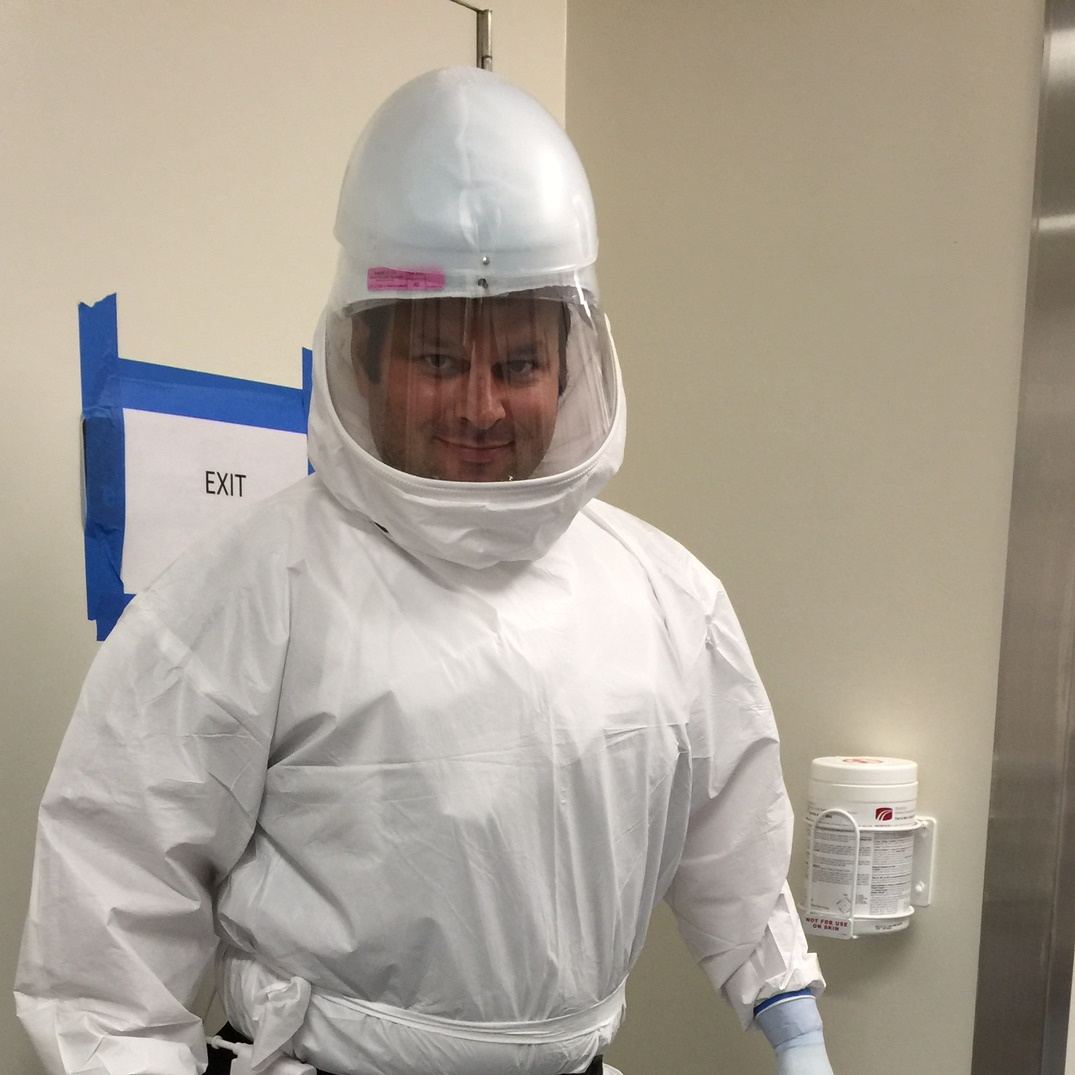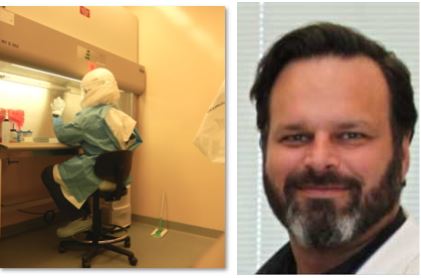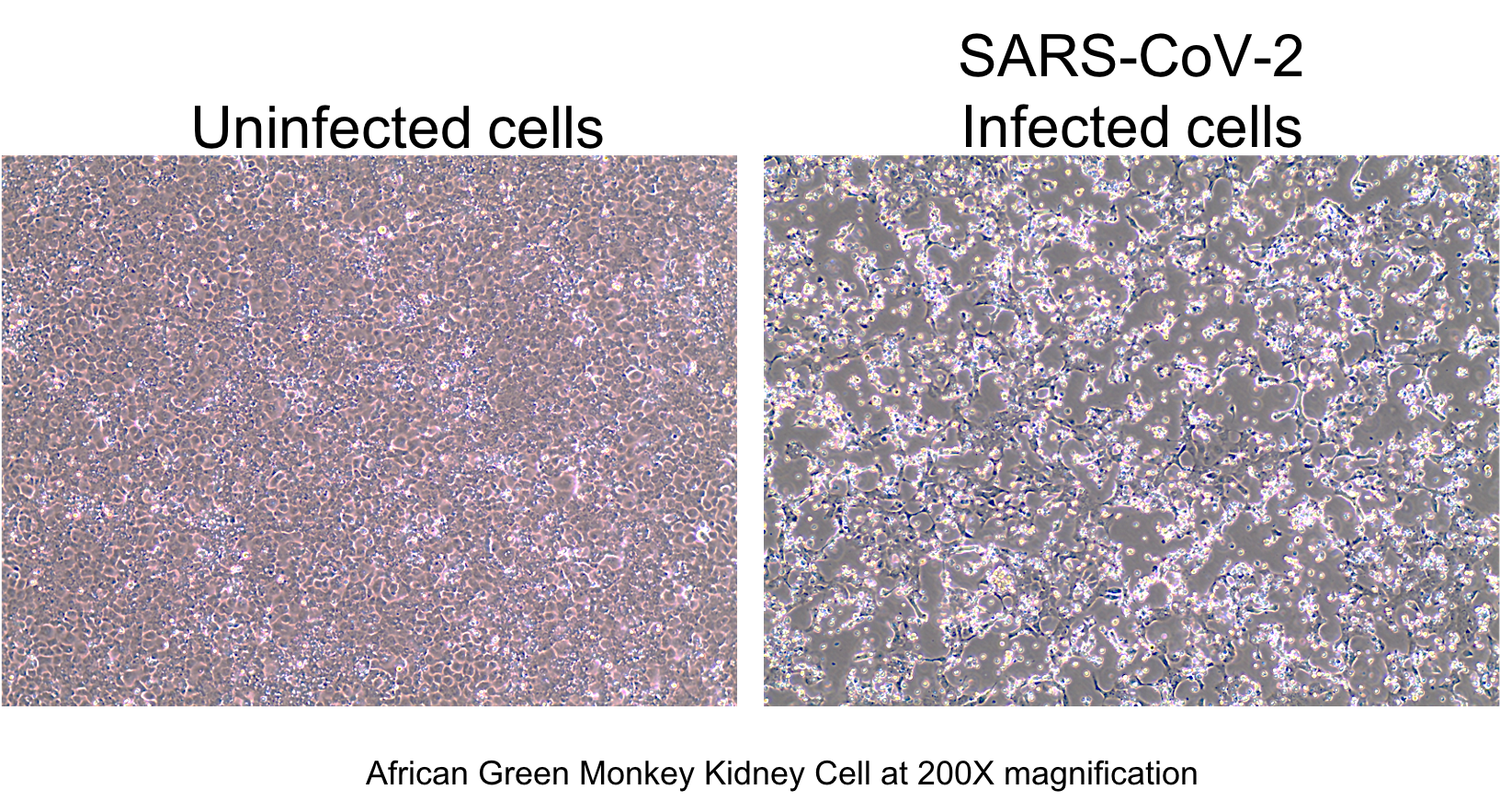
GAINESVILLE, FL – SEER Lab Medical Geographer Dr. Michael Norris has launched a new BSL3 lab specifically to study COVID-19 at the Emerging Pathogens Institute.
When the pandemic initially broke out, Dr. Norris initially offered his time to help with the testing effort, but quickly realized that his skills could be better utilized elsewhere. He has been working hard setting up the SARC-CoV-2 BSL3 lab from the ground up – ensuring that all the regulatory and compliance paperwork is in place, collaborating with PIs across campus at the College of Medicine, College of Veterinary Medicine, the College of Engineering, and even IFAS.

Dr. John Lednicky from the Department of Environmental and Global Health runs a virology lab that isolated SARS-CoV-2 from the first patient at Shands. This isolate has only 3 base pairs different from the first sequenced SARS-CoV-2 isolate from Wuhan, China. Dr. Norris was brought on to establish a lab to take the experiments to the next level. The proposal entitled, “Identification of host determinants of SARS-CoV-2 infection” was funded by the UF’s Clinical and Translational Science Institute COVID-19 Rapid-Response Research Pilot Fund.

Dr. Norris is a co-Investigator on the grant and will be overseeing if not performing most experiments directly with the virus in the BSL3. He is working closely with the PI Dr. Christopher Vulpe a CRISPR expert in the Department of Physiology and virologist and CRISPR co-Investigator Dr. Stephanie Karst of the Department of Molecular Genetics and Microbiology. Mike will also be training new individuals on BSL3 laboratory skills to increase the workforce capability.
The abstract for the grant:
“Work demonstrated the utility of functional genetic approaches, including genome-wide CRISPR screens, to identify host factors that promote and restrict viral replication. We will carry out genome-wide CRISPR-based knockout and activation screens to identify host components that regulate SARS-CoV-2 infection. In these screens, pooled mutant cell libraries will be infected with SARS-CoV-2 at a high MOI and mutant cells resistant to SARS-CoV-2 infection will be identified. CDC researchers identified human cell lines susceptible to SARS-CoV-2 lines but the infection is not cytopathic (CPE). Previous work with SARS-CoV-1 demonstrated G0/G1 arrest during infection so we will use continued cellular proliferation (escape from G0/G1 arrest) to identify the resistant cells. We will also attempt to enhance CPE in human cells to enable use as a screening endpoint. As a third alternative, we plan to generate genome wide CRISPR libraries for the African Green Monkey Cells (VeroE6) which are lysed by SARS-CoV-2 infection. Together these approaches should allow identification of host factors that regulate SAR-CoV-2 infection which represent candidate druggable targets with a high likelihood of having broad-spectrum activity across the coronavirus family.”